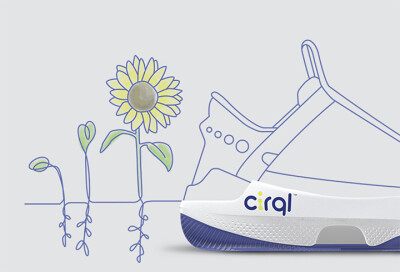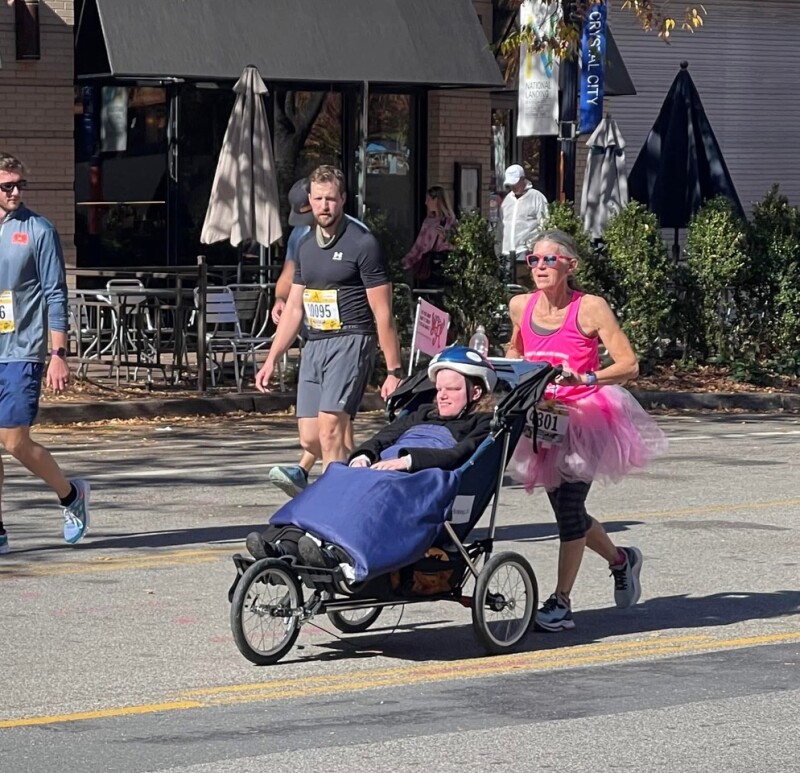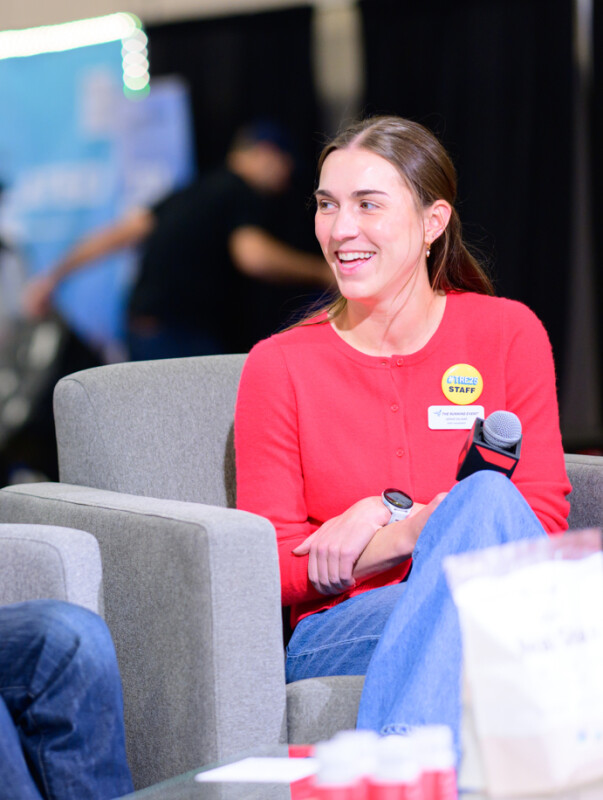Taking its unique technology to a new marketing level, OrthoLite, the maker of sustainable, performance and comfort insoles and footwear materials solutions, and Novamont, a developer of biodegradable and compostable bioplastics and biochemicals, have entered into an exclusive partnership in the creation of OrthoLite Cirql, billed as the world’s first circular foam material solution for footwear.
OrthoLite Cirql foam is a patented footwear materials solution combining OrthoLite’s expertise in foaming polymers and Novamont’s bio-based, compostable and recyclable polymer to provide the first technology capable of greatly reducing the high impact of the manufacturing process with multiple end-of-life disposal options.
According to a new Life Cycle Assessment carried out by the Massachusetts Institute of Technology (MIT), a typical pair of running shoes generates 30 pounds of carbon dioxide emissions, equivalent to running a 100-watt light bulb for a week. Every year, in the United States alone, people throw away more than 300 million pairs of shoes, 95 percent of which end up in landfills.
OrthoLite Cirql will offer a traditional plastic-free, scalable and truly circular material to OrthoLite’s 500-plus footwear brand partners and factory stakeholders in 2023.
“OrthoLite Cirql illuminates the path forward to truly circular footwear,” explains Glenn Barrett, CEO and founder of OrthoLite. “We are excited to be partnering with Novamont to escalate scalable solutions to drive positive change in the global footwear industry. This partnership is built on trust and transparency, as well as a relentless commitment to equip our 500-plus global footwear brand partners to have access to single-source circular materials, starting with the midsole.”
OrthoLite sought out the high-tech bio-polymer company because of Novamont’s activities in the field of the circular bioeconomy and for its 30 years of experience in the development of chemical and biotechnological processes to create low-impact certified biodegradable and compostable solutions with multiple end of life options for everyday life, including packaging, separating organic waste collection, retail purchasing, disposable tableware, farming, lubricants, cosmetics, pharmaceuticals and more.
“Proving by facts that it is possible to ‘do more with less,’ Novamont has always based its model on the development of products conceived as true catalysts for change, which are capable of activating much greater systemic effects than the product itself, and not as mere substitutes for traditional ones,” says Catia Bastioli, CEO and founder of Novamont. “Our philosophy has always been to avoid the problems of pollutant accumulation in the environment and the fruitful collaboration with OrthoLite, a company that is also committed in finding solutions and not just products, allows us to bring our approach to the footwear industry for the first time.”
OrthoLite Cirql is free from “forever chemicals” and responsibly sourced from non-GMO traditional vegetable raw materials derived from plants plus synthetic biodegradable materials. The material can be returned to the production cycle by low-energy, advanced chemical recycling to help keep materials in use or back to nature as fully compostable through selected industrial composting methods and processors. Using existing and new, closed loop, take back, recycling streams for footwear, scalable end of life management will involve collaboration with footwear brands and the waste management sector.
Novamont Research developed a tailor-made bio-polymer material for the OrthoLite Cirql’s chemical-free foaming process that uses nitrogen from the air combined with renewable energy. Unlike the conventional foaming methods currently used, no dangerous or toxic chemical additives are used in the production of Cirql. The biopolymer pellets are melted and mixed with liquid nitrogen under extreme pressure, in a unique injection molding process that results in incredibly efficient cycle times that reduce energy consumption and create a finished part with no downtime, polymerization or waste.






